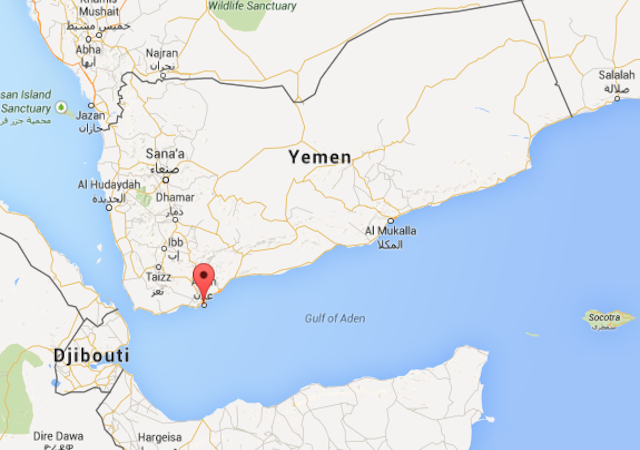Yemen’s power vacuum opening doors for al-Qaeda
Will “mediation” work?

Today, 32 people died trying to escape Yemen. Houthi rebels fired a shell at their boat as it pulled out of port in the strategically-crucial gulf city of Aden. Overnight, fierce fighting had broken out in the al-Tawahi district between Iranian-backed Houthi rebels and militia forces loyal to (deposed and yet back again) President Hadi. It was a territorial struggle; even more may have died on the ground as Saudi airstrikes attempted to push the Houthi back even further.
This isn’t a “crisis”; it’s something else entirely.
Secretary of State John Kerry has pledged $68 million in new U.S. aid to Yemen, and is working on securing a “pause” in the fighting so that humanitarian workers can get food, fuel, and medicine to civilians caught in the crossfire.
We’ll see. Maybe they’ll give it to him.
The article I linked in the previous paragraph focuses on the Saudi coalition airstrikes as the main crisis-causing element in Yemen, but don’t forget—the Houthi began their serious march through the country months ago, menacing local populations, threatening the border with Saudi Arabia, and destabilizing what was once a fairly stable (we’re not saying perfect) western-backed regime.
Forget the bombs. Destabilization is the long game here, and it’s going to cause a problem that will require greater counterterror efforts down the line. Groups like ISIS, Boko Haram, and Yemen’s powerful Al-Qaeda cell thrive off of conflict, destabilization, and fear—and the international community may be whipping all three of those elements up into a perfect storm.
The UN, of course, can always be counted on to call for “mediation.” From Newsweek:
Speaking to students during a visit to Beijing, EU foreign policy boss Federica Mogherini said the situation in Yemen was highly hazardous.
“I believe that this is extremely dangerous, as al Qaeda is trying to fill the gap, the vacuum, that is left open in a state of increasing lawlessness,” Mogherini said at the elite Peking University.
“We need to focus all efforts we can on an international mediation,” she added.
“Because we know that unilateral solutions don’t work in general, and in particular don’t work in a situation like the one in Yemen where the conflict has deep local roots and in the meantime is inserted into a complex regional situation.”
This is, of course, all true. Al-Qaeda is working overtime to protect one of their most valuable assets, and the fall of the Hadi government, paired with the violence of the Houthi coup and the reluctance of the establishment international community to do much more than call for diplomacy is making that protection easier and easier.
Even assuming for the sake of argument that Saudi is conducting airstrikes against the Houthi advance purely for the purpose of strategic power maintenance, we’ve seen what “international mediation” looks like: it didn’t work. Last month, the EU threw envoy Jamal Benomar under the bus after negotiations between warring factions broke down over disagreements on government structure and participation.
This breakdown didn’t happen overnight. Benomar worked on the stabilization of Yemen for four years before he resigned, proposed various “power-sharing” plans, and included representatives from the Houthi even as the group began its spread through Sana’a.
The international community’s frustration with Saudi over the airstrikes is one thing; the proposing of “international mediation” like it’s a new concept to these people is another. Every day spent arguing over the best way to handle the violence is another day al-Qaeda has to exploit the hunger, fear, and terror of the ordinary people currently hiding in cellars and under tables. Mediation won’t stop the Houthi advance (Benomar already tried that) and it won’t stop Shiite rebels from lobbing rockets across the border into Saudi Arabia. (Welcome to reality, EU flacks—the Houthi are targeting Saudi civilians now, too.)
 DONATE
DONATE
Donations tax deductible
to the full extent allowed by law.







